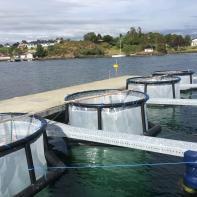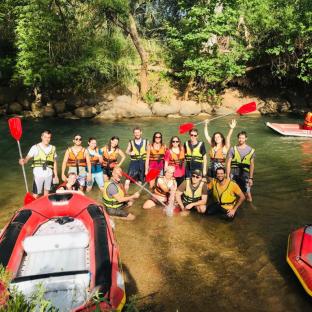

Prof. Assaf Vardi
Phytoplankton are unicellular alga that form massive oceanic blooms covering thousands of square kilometers. Half of the photosynthetic activity on Earth is performed in the ocean by these microscopic organisms, and their influence on global cycles of carbon, nitrogen, and sulfur is immense. The fast turnover rates of these organisms makes them a sensitive proxy for evaluating the impact of climate change on marine ecosystems. Microbial interactions that regulate the fate of algal blooms play a profound role in determining carbon and nutrient cycling in the ocean and feedback to the atmosphere. Some of the key mortality agents of algal cells are marine viruses, bacteria, and grazers. The specific interaction (with these pathogens) that leads to the demise of a bloom will have a unique footprint on the environment. Each interaction will differentially influence the carbon export to the deep ocean, recycling of nutrients available to the rest of the marine organisms, biodiversity, and even influence the atmosphere above the dying bloom. The latter occurs when dying algal cells produce volatile chemicals that are emitted to the atmosphere as aerosols and can modulate cloud formation.
In our lab, we investigate these algae-pathogen interactions on the molecular level and develop state-of-the-art tools to track these interactions across scales – from the single-cell level to vast oceanic blooms. Over the last 12 years, we developed a few model systems with ecological importance. We have established high throughput tools to study genomics, physiology, and metabolism of marine microbes during their interaction with pathogens and following environmental stress conditions. While most of the basic science is performed in the lab and allows for interesting discoveries of the biology and chemical ecology of these microbial interactions, we are passionate about testing our findings in the real world with natural populations in the ocean.

